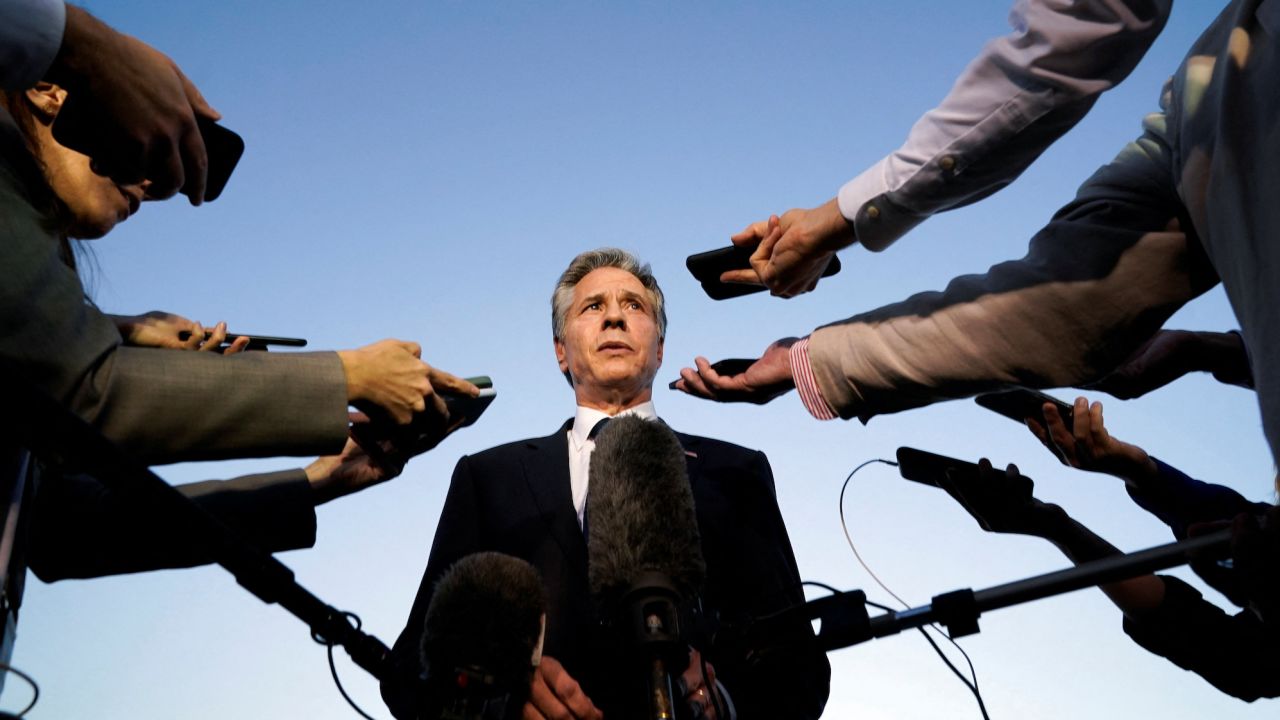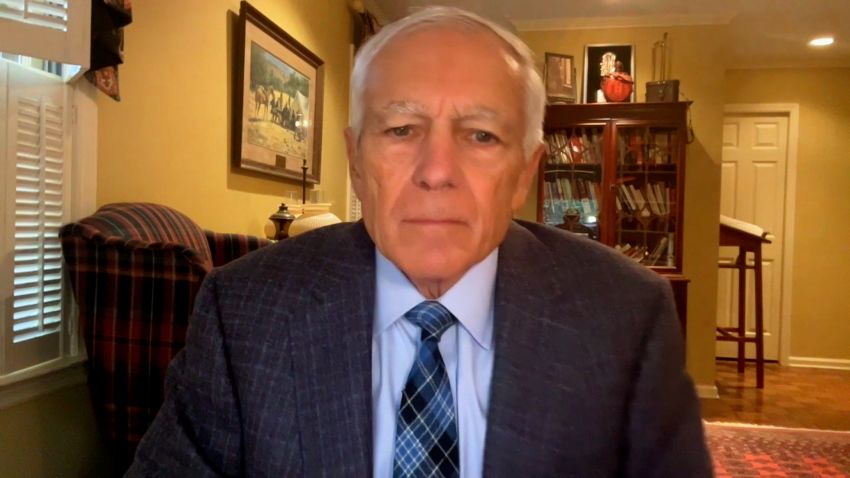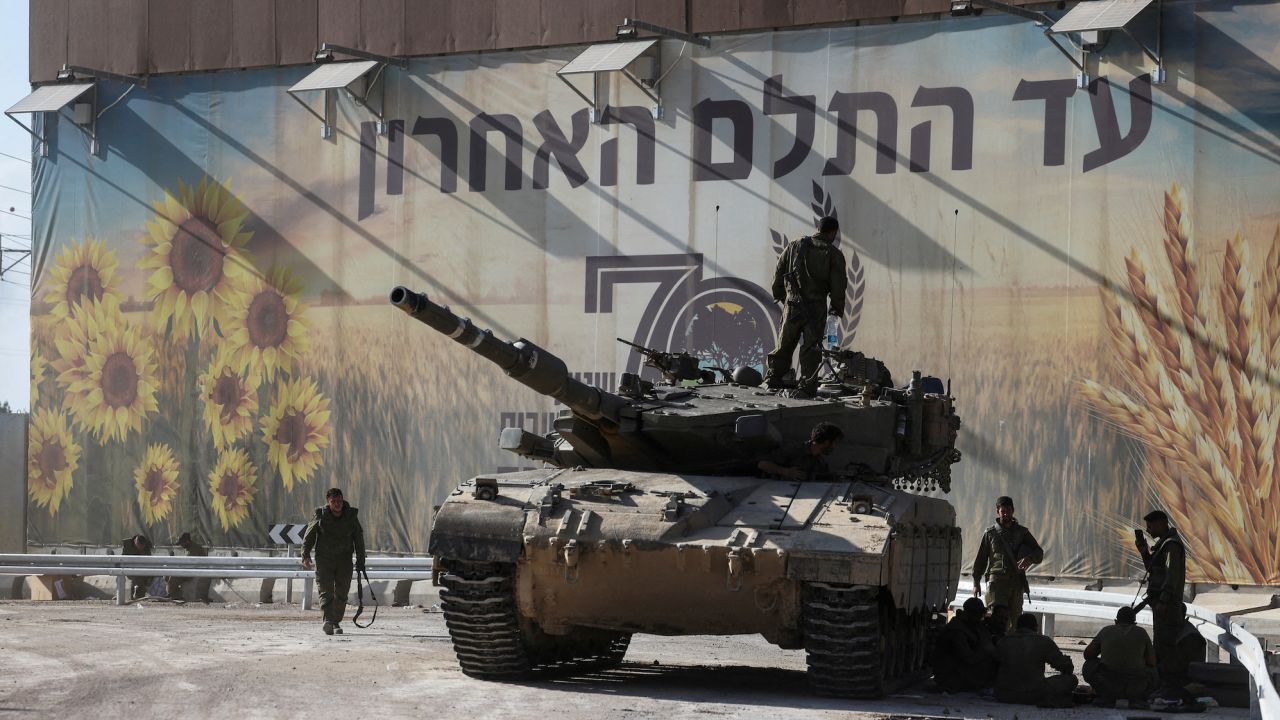Gaza and Jerusalem
CNN
—
Gaza is being “strangled” by Israel’s week-long siege and aerial bombardment, UN experts have warned, as concerns grow that further escalation and a lack of safety for fleeing civilians risks drawing regional foes into the long-running conflict.
Israel has vowed to wipe out Hamas in response to the unprecedented October 7 terrorist attacks by the Islamist militant group, which controls the enclave. At least 1,400 people were killed and many taken hostage during Hamas’ rampage, the Israel Defense Forces (IDF) said in what US President Joe Biden has called “the worst massacre of Jewish people since the Holocaust.”
Diplomatic efforts to establish a humanitarian corridor to send desperately-needed supplies into Gaza are ramping up before the coastal strip’s 2.3 million people completely run out of clean drinking water, food, fuel and medicine, which aid agencies have warned will result in an unprecedented humanitarian catastrophe.
“Gaza is being strangled and it seems that the world right now has lost its humanity,” said UNRWA Commissioner-General Philippe Lazzarini, in an urgent plea for critical aid to be allowed in. “We all know water is life – Gaza is running out of water, and Gaza is running out of life. ”
Lazzarini said that “not one drop of water, not one grain of wheat, not a liter of fuel” has been allowed into Gaza for the past eight days and people trapped in the densely-populated blockaded strip are desperate.
Hospitals in Gaza under constant barrage from Israeli airstrikes face imminent shutdown due to a lack of fuel to run generators that pump water and keep life-saving equipment such as ventilators and incubators operating, Palestinian Red Crescent Director General Marwan Jilani told CNN. Fuel, he said, would run out by Monday or Tuesday.
On the brink of collapse, hospitals have run out of painkillers and many Gazans are beginning to suffer from severe dehydration due to lack of drinking water, according to medical NGO Medecins sans Frontieres. Multiple aid agencies have said fuel and other necessities could run out in hours, not days.
The 50,000 pregnant women currently in Gaza – 5,000 of whom are due to give birth in the coming month – face a “double nightmare,” said UN Population Fund (UNFPA) representative Dominic Allen, and face having their babies in unsanitary conditions, risking health complications while under the threat of bombs.
Compounding the critical situation, is the hundreds of thousands of people fleeing their homes in northern Gaza and attempting to head south through the battered streets ahead of an Israeli offensive that the IDF said would include widespread strikes and “significant ground operations.”
UNRWA’s Lazzarini said at least 1 million people were forced to flee their homes in one week alone and at least 400,000 displaced people are taking shelter in UN schools and buildings though there is little available space to cope with the numbers of displaced.
Israeli President Isaac Herzog on Sunday described the “horrific scenes” he saw from the Hamas assault on Israeli homes and communities, including a booklet he claimed contains tactics used by the militant group to kidnap and torture people.
“My nation is bleeding my nation is in pain. My nation is in sorrow. And we are faced with an extremely cruel, inhumane enemy which we have to uproot with no mercy,” he told CNN.
In over a week of bombardment, Israeli airstrikes have killed least 2,670 people in Gaza, including hundreds of children, according to the Palestinian Health Ministry, which accused the Israeli military of “direct targeting of medical staff and their families.”
Casualties in Gaza over the past eight days have now surpassed the number of those killed during the 51-day Gaza-Israel conflict in 2014. Meanwhile Hamas is believed to be holding some 150 Israeli and foreign nationals hostage in the warren of tunnels underneath Gaza.
Frantic calls to open humanitarian corridors into Gaza have grown in urgency and number in recent days, with United Nations Secretary-General Antonio Guterres, Pope Francis and several nations and international aid agencies now among them.
President Herzog said Sunday he was meeting again with US Secretary of State Antony Blinken to discuss establishing a humanitarian corridor but further plans to execute such a corridor would need to include “Israeli cabinet and government under Prime Minister (Benjamin) Netanyahu and the new national unity emergency government.”
The top US diplomat has been visiting Israel and neighboring countries this week meeting with various regional leaders.
On Sunday Blinken promised the Rafa border crossing – the only entrypoint into Gaza that Israel does not control – “will be open” and that the US was working with the UN, Egypt, Israel and others to coordinate aid efforts.
China’s top diplomat Wang Yi accused Israel over the weekend of going “beyond the scope of self-defense.” China’s Middle East envoy Zhai Jun said he would visit the region this week.

Aid has been piling up on the Egyptian side of Rafa crossing but so far, the crossing appears to remain nonfunctional; Egypt says that airstrikes on the Gaza side have made roads inoperable, and Jordan has said it is seeking assurance that aid convoys will not be targeted by Israeli warplanes.
Israeli ambassador to the United States Michael Herzog told CNN Israel is in the process of creating a humanitarian zone in Gaza that would be able “to host hundreds of thousands of people,” but the spokesperson for the UN Secretary-General, Stéphane Dujarric, said he could not confirm whether the UN is working with the Israeli government to establish such a zone.
It is also unclear if water is now flowing into southern Gaza.
Israeli Prime Minister Netanyahu’s office told CNN Sunday that Israel has restored water to southern Gaza, but the director of the Water Authority there said he didn’t know if water was available because the electricity necessary to pump water for use had not been restored.
IDF spokesperson Lt. Col. Jonathan Conricus later said Israel has “opened taps” on its side to allow water to enter southern Gaza, but he said he “doesn’t have visibility on exactly how much is actually flowing where it should.”

Military analyst: Hamas is losing the second phase of their plan already
As Israel battles Hamas, it also faces the threat of a wider conflict on new fronts, with hostilities with Lebanon’s powerful Iran-backed Hezbollah in the north, and Syria potential flash points.
A regional conflagration has western powers concerned: French President Emmanuel Macron “warned” his Iranian counterpart Ebrahim Raisi against an escalation of the Gaza crisis on Sunday and the US has been increasing its defense posture in the Middle East to deter any Iranian aggression or an expansion of the fighting beyond Israel’s borders, according to a US official.
Additional US attack aircraft including A-10 Warthogs arrived in the Middle East Sunday joining squadrons of fighter jets already deployed as well as two US carrier strike groups deployed to the eastern Mediterranean Sea.

Speaking to CBS Sunday, US National Security Adviser Jake Sullivan said that while there is no new intelligence the threat level from Iran has changed, “there is a risk of an escalation of this conflict.”
“The opening of the second front in the north and of course of Iran’s involvement, that is a risk and that’s a risk that we have been mindful of since the start,” Sullivan said.
Skirmishes between Israel and Hezbollah on Israel’s northern border with Lebanon “only enhances the risk of escalation,” Sullivan said, adding that “of course, we can’t rule out that Iran would choose to get directly engaged some way we have to prepare for every possible contingency.”
Iran has warned of the consequences of a possible larger escalation if Israel continues to attack Gaza.